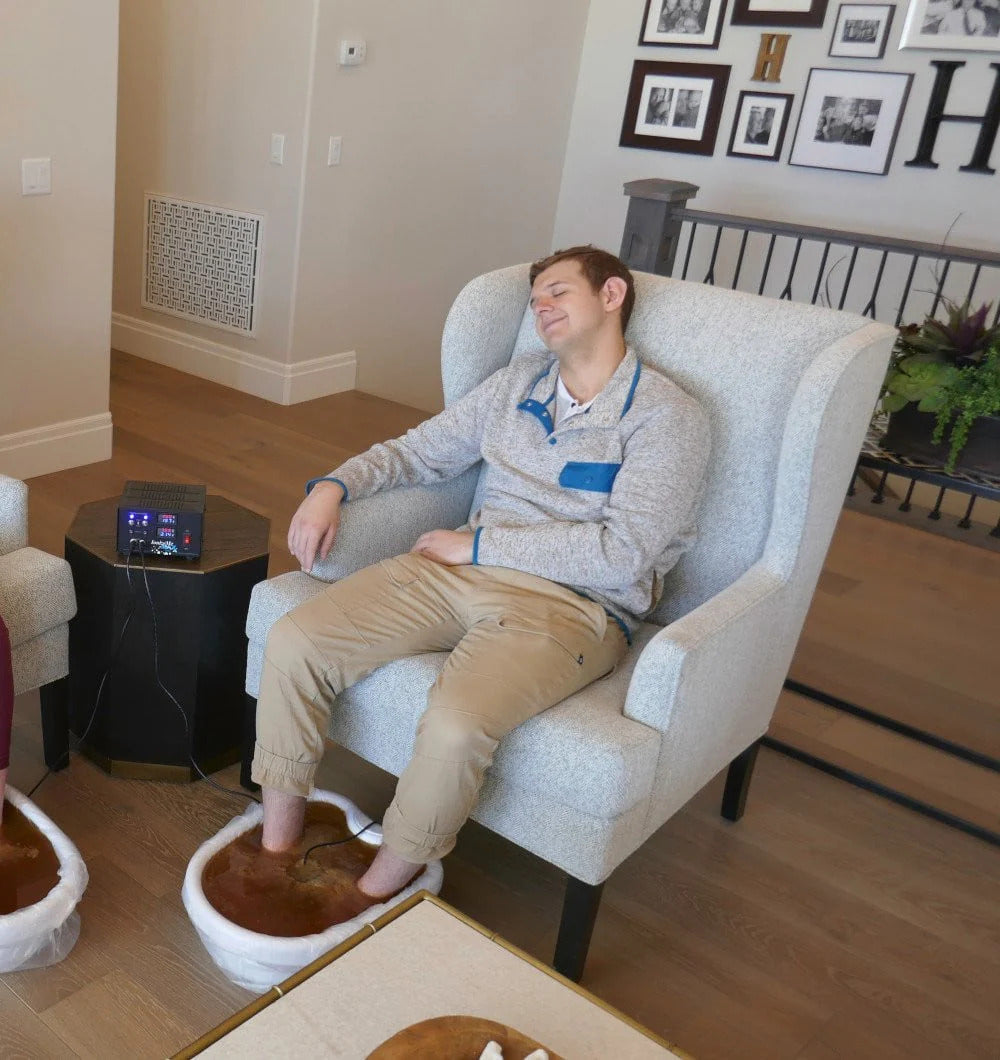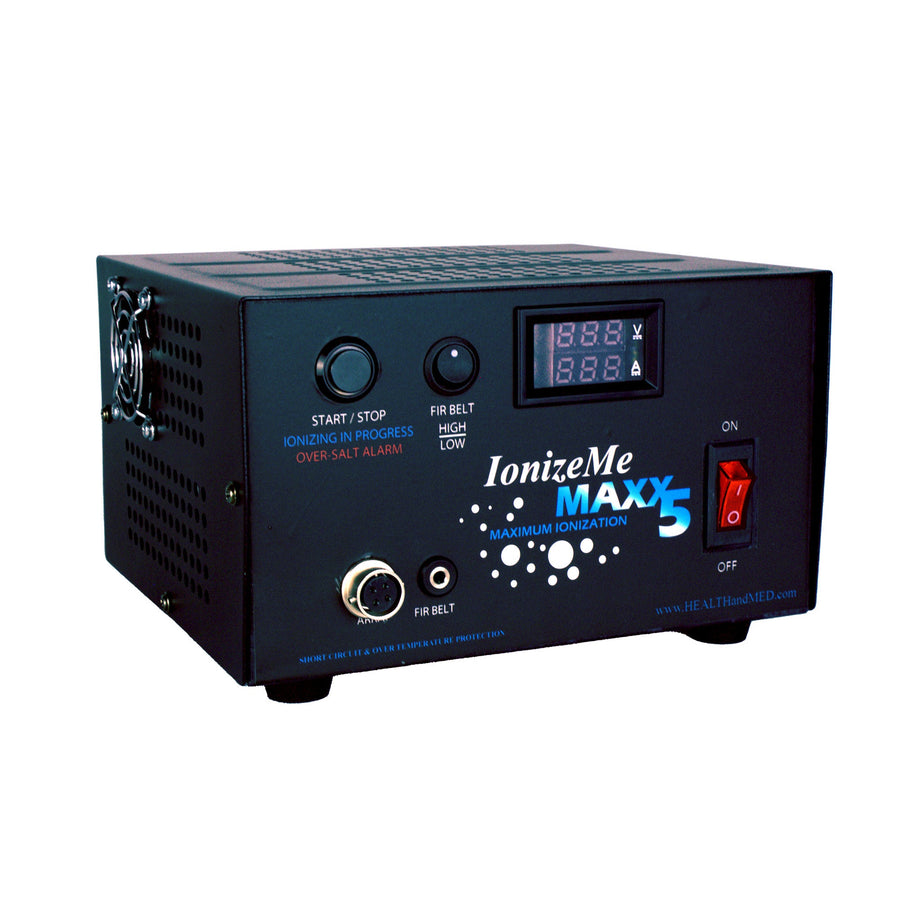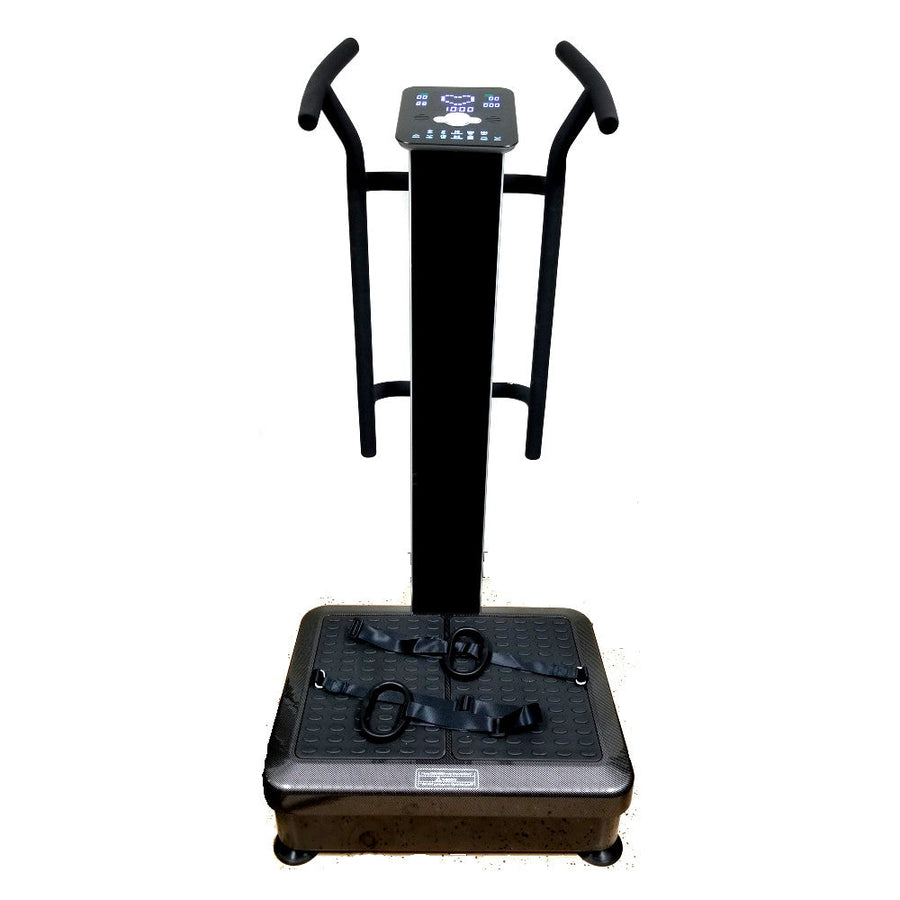Ionic Foot Detox: Dos & Don’ts for Optimal Results

Do you ever feel sluggish, bloated, or just generally unwell? If so, you’re not alone. Many of us constantly look for ways to improve our health and well-being. One popular method that has gained traction recently is ionic foot detox. However, as with any health practice, there are right and wrong ways to go about it.
In this article, we’ll explore the dos and don’ts of ionic foot detox to help you get the most out of this beneficial practice. From what to expect during a session to common mistakes to avoid, we’ve got you covered. So, let’s dive in and discover how to achieve optimal results with ionic foot detox.
How to Maximize Ionic Foot Detox Results with Dos & Don’ts
Ionic foot detox is a practice that has gained popularity in recent years as a way to cleanse the body of toxins and improve overall health and well-being. The process involves soaking the feet in a bath of warm water and salt while an electric current passes through the water. This creates negative ions, which help draw toxins out of the body.
Many proponents of Ionic Foot Detox help alleviate many health issues, including fatigue, joint pain, and skin problems. Some even suggest it can improve organ function and boost the immune system.
Understanding the dos and don'ts of any health practice is crucial to achieving the best possible results. With that in mind, let's delve into the dos and don'ts of ionic foot detox and provide some practical tips for maximizing its benefits. By following these guidelines, you can ensure that your ionic foot detox experience is safe and effective while enjoying all of its potential benefits.
The Dos of Ionic Foot Detox
Ionic foot detox is a practice that can provide many potential benefits for your health and well-being. To get the most out of this practice, it’s essential to follow some crucial dos that can help to maximize its effectiveness. Here are some of the crucial dos of ionic foot detox:
- Hydrate your body
Drinking plenty of water before and after your ionic foot detox session is crucial for achieving optimal results. Adequate hydration assists in flushing out toxins from your body, so aim to consume at least 8-10 glasses of water each day to keep your body hydrated.
- Eat a balanced diet
A well-balanced diet is essential for supporting your body’s natural detoxification processes. Focus on incorporating fresh fruits, vegetables, lean proteins, whole grains, and healthy fats into your diet. Processed foods, sugary drinks, and alcohol can contribute to inflammation and toxicity in the body, so it’s best to avoid them.
- Wear comfortable clothing
It’s essential to wear loose and comfortable clothing during your ionic foot detox session. Wearing tight clothes can restrict blood flow and make it challenging for your body to release toxins.
- Consider supplements
Certain supplements can support your body’s natural detoxification processes and enhance the benefits of your foot detox session. Supplements such as milk thistle, dandelion root, and vitamin C are known for their detoxifying properties.
- Manage stress levels
Stress can negatively impact your body’s ability to detoxify effectively. To maximize the benefits of your foot detox sessions, prioritize relaxation and stress management techniques such as meditation, yoga, or deep breathing exercises.
- Incorporate exercise into your routine
Regular exercise can boost your body’s natural detoxification processes and maximize the benefits of your foot detox session. Aim for at least 30 minutes of moderate exercise daily, such as brisk walking, jogging, or cycling.
By following these dos of ionic foot detox, you can maximize the benefits of this powerful practice and support your body’s natural detoxification processes. Be sure to work with a qualified practitioner to ensure that you’re getting the most out of your foot detox sessions, and always listen to your body’s needs and responses to ensure that you’re staying safe and healthy.
The Don’ts of Ionic Foot Detox
Ionic foot detox can be a great way to support your body’s natural detoxification process. However, knowing what not to do is essential to achieve optimal results. Here are some key don’ts to keep in mind when undergoing ionic foot detox:
- Don’t rely solely on ionic foot detox for detoxification
While ionic foot detox can be a helpful tool for supporting detoxification, it’s important not to rely on it as your only detoxification method. Our bodies are constantly exposed to toxins from our environment, food, and lifestyle choices, and it’s essential to take a comprehensive approach to detoxification that includes other strategies like healthy eating, regular exercise, and reducing exposure to environmental toxins.
- Don’t consume alcohol or caffeine before or after your session
Alcohol and caffeine can dehydrate, which can interfere with the detoxification process. It’s best to avoid these substances before and after your ionic foot detox session and focus on hydrating your body with water and other beverages like herbal tea and coconut water.
- Don't use it if you have some type of electrical implant
You should avoid using ionic foot detox if you have any electrical implants, such as a pacemaker or an insulin pump. The electrical currents used in the process could interfere with the function of the implant and cause harm.
- Don't use it if you're pregnant or breastfeeding
The ionic foot detox has not been studied extensively in pregnant or breastfeeding women, so it's best to avoid it during these times to ensure the safety of both the mother and the baby.
- Don’t use it if you have open wounds or infections on your feet
If you have open wounds or infections on your feet, it's best to avoid ionic foot detox. The process involves immersing your feet in the water, which could introduce bacteria and potentially worsen the infection. Wait until the wound or infection has healed before undergoing an ionic foot detox.
Avoiding these don’ts and focusing on a holistic approach to detoxification can maximize the benefits of ionic foot detox and support your body’s natural healing process.






